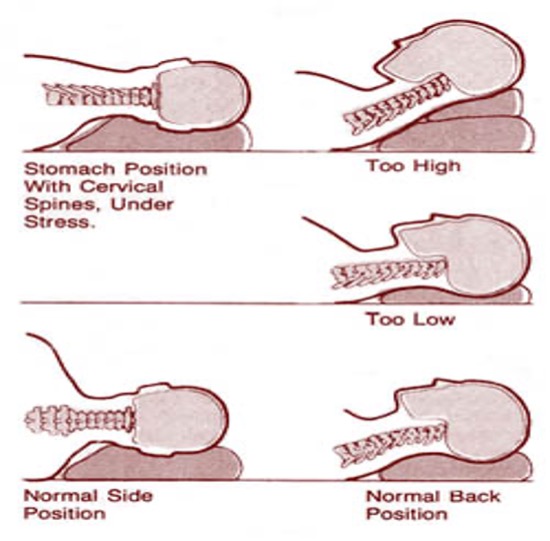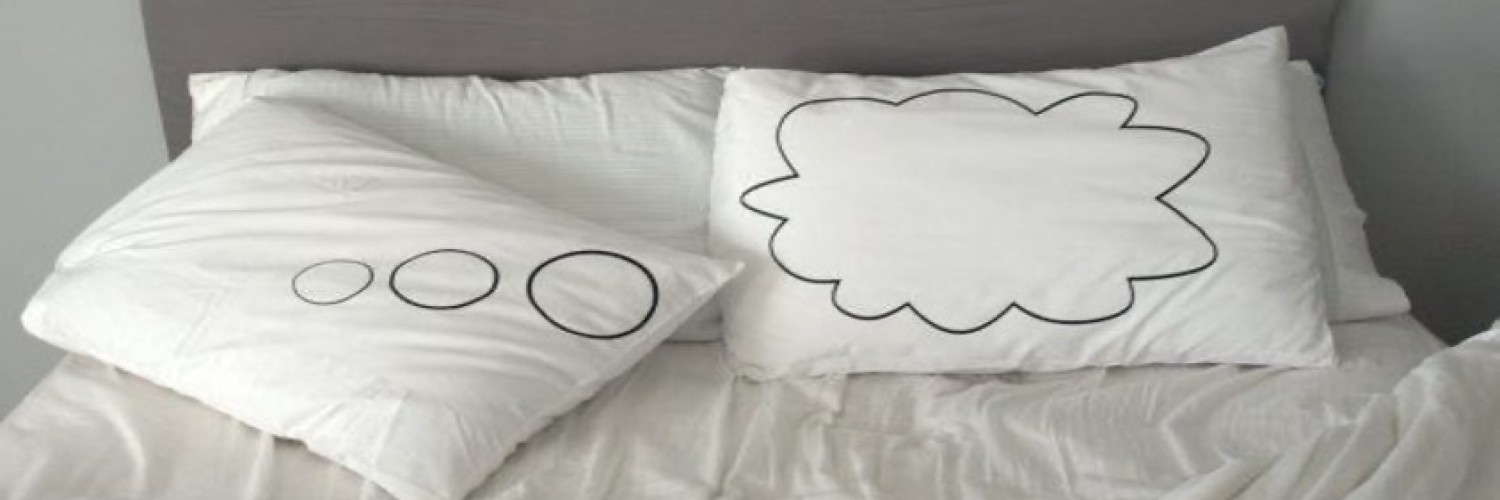Contour, Anti-snore, Memory Foam, Ribbed (yes, we’re still on the topic of pillows!), Goose feathers, Bamboo…. How is someone supposed to have any idea what sort of pillow they need? Or perhaps WHY they need a ‘certain’ type of pillow in the first place. Surely your $20 floppy joe pillow you’ve had since you were 10 will do – won’t it?
Well let me whisper a little something into your ear…. THROW THAT DARN PILLOW AWAY! As a practitioner for the past 16 years, I can’t tell you the number of patients that come through my door with headaches, jaw pain, back, neck, shoulder and often hip pains that is all too often associated to terrible pillows. How much damage can a measly little cushion do you ask? Let’s have a quick look.
A majority of the populations are either side lying or back sleepers, the remainder are stomach or what I like to refer to as, helicopter (all over the place) sleepers. In addition to sleep positions, key considerations to finding the right pillow are personal preference and comfort. I would like to urge you however now to buy off the shelf, particularly if you’ve suffered spinal pains, headaches or hip and pelvic pain. Why? Because you don’t know if that pillow will support you correctly.
See the attached image below to see what I am referring to:
In the first image, you see the stress on the neck as it has to be rotated when sleeping on your stomach. A pillow too soft or hard will further add to this spinal stress.
Too high and too low change the natural curvature of the spine, adding stress to the joints, ligaments and musculature. This also can impact on breathing, by mildly obstructing the passage of air, potentially contributing to snoring and sleep apnoea.
The right pillow for you should keep the spine in its natural alignment.
Your pillow must also feel comfortable, however in saying this, I often advise people when they purchase a pillow, consider it a little like new shoes – you will LOVE it, once you get used to it. So give it a couple of days. Also consider the surface of the pillow when choosing comfort, some pillows such as memory may feel too warm, if this is the case, slip a cotton pillow case and avoid flannel material, and vice versa if your preference is a warmer feeling.
Pillows for each sleep position:
It is important that you choose a pillow that best suits your favoured sleep posture.
- For the back sleeper:The natural curve of the neck needs to be supported here, and adequate support of the head will further allow for comfort and take any undue pressure off the spine and shoulders.
- For the side lying sleeper: It’s important that your spine is kept neutral, and your head and neck are supported. A medium to firm pillow will discourage you to want to tuck your chin down, or slip your arm under your head to add support.
- For the one who likes tummy time: I must add, this is not a favourite for the practitioner, however we appreciate that sleep postures need to be comfy so that you have a restful night. If sleeping or resting on the stomach is preferred, the pillow should be relatively flat, to reduce the head and neck turning unnaturally to either side. In this position, it is often best to place another relatively flat pillow under the stomach to help the spine keep its natural alignment.
The reason we choose to recommend Dentons pillows here at Evado, is that it has been proven that over time (and often very little time), cotton filled pillows lose their firmness, if they had any to begin with, and offer zero support to the head, shoulders and spine. Some feathered filled pillows may offer little support; however, allergies tend to be another issue for people with these pillows. Dentons use specialised foam in their pillows, ensuring correct support, comfort and a great night’s sleep.
So the next time you feel like a little pillow talk, ask a member of our team to assist you in finding the right pillow for a great night’s sleep.
Click on the images below to expand.

